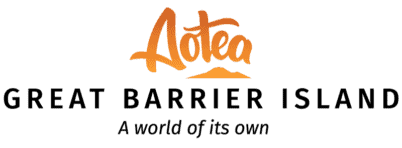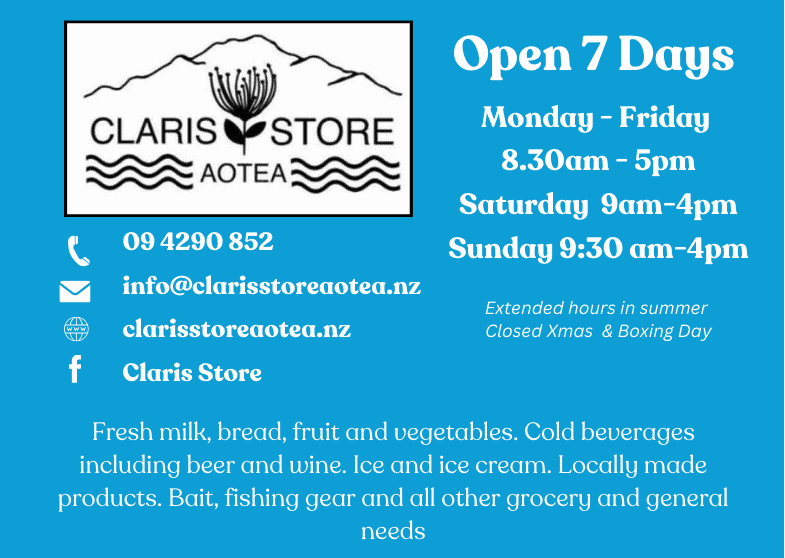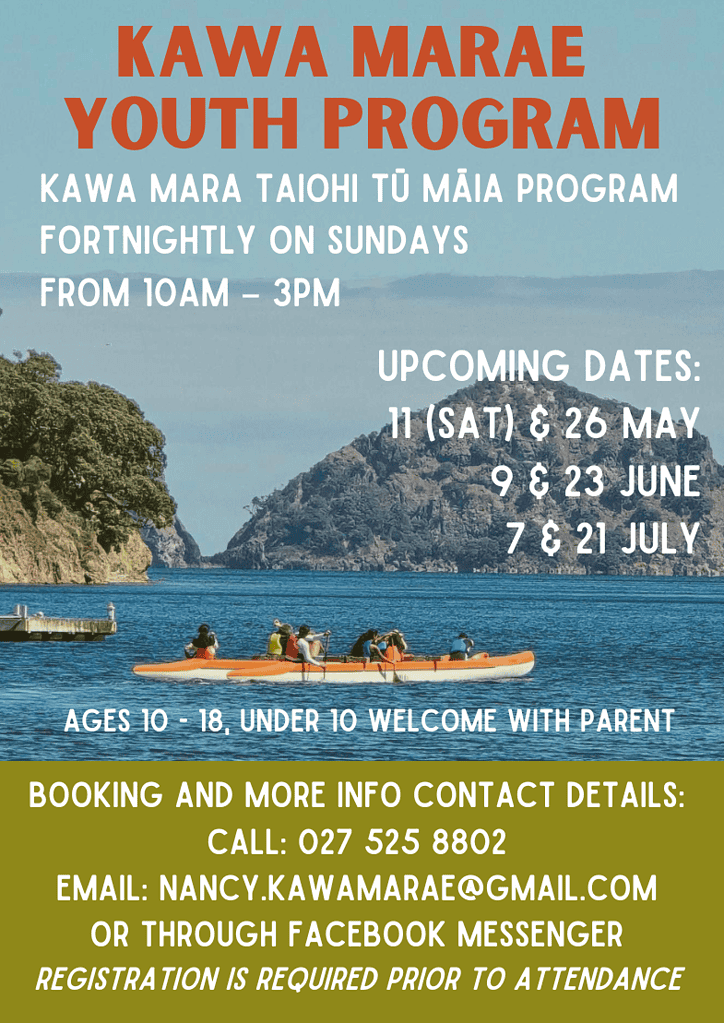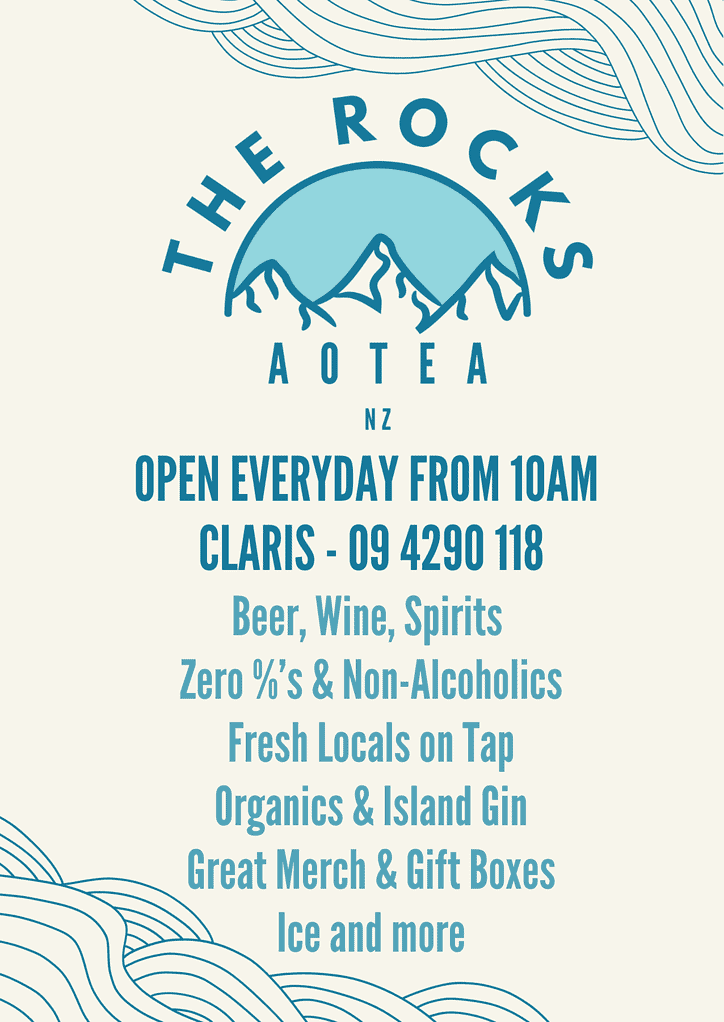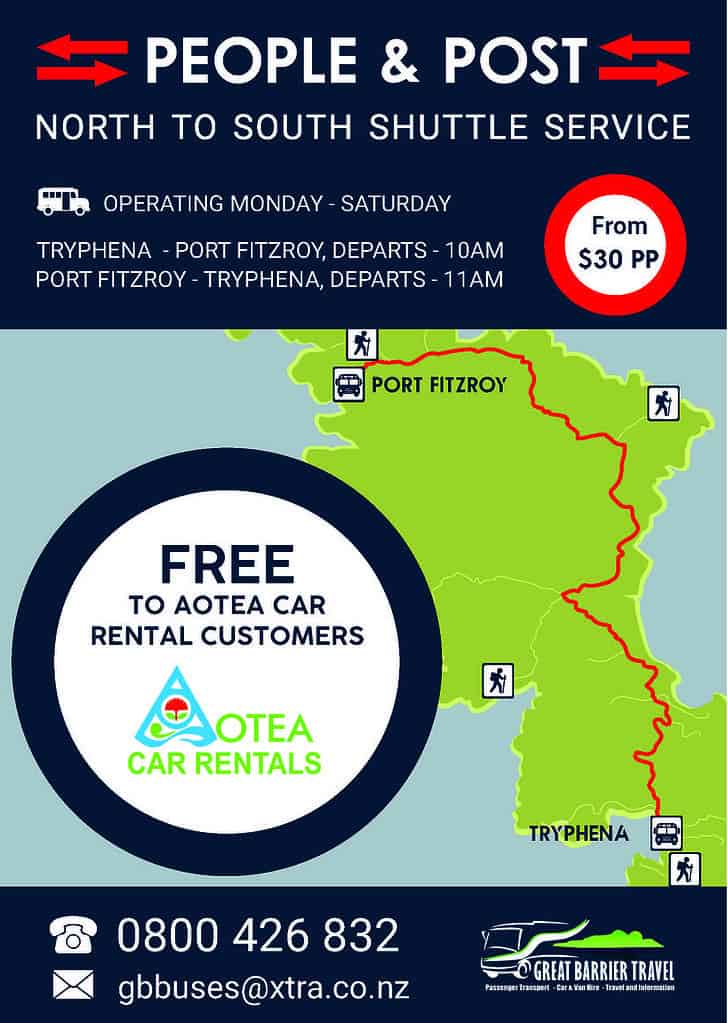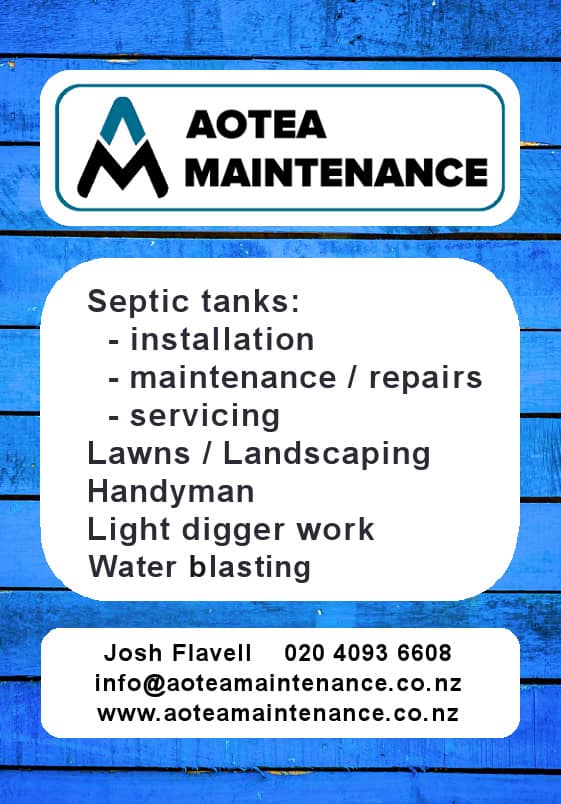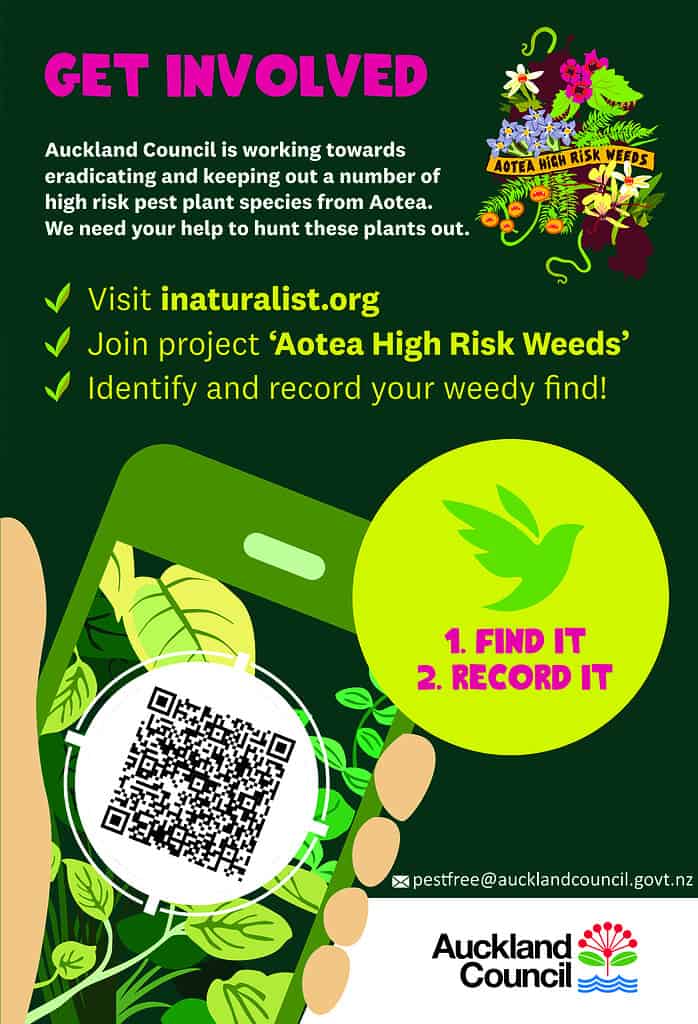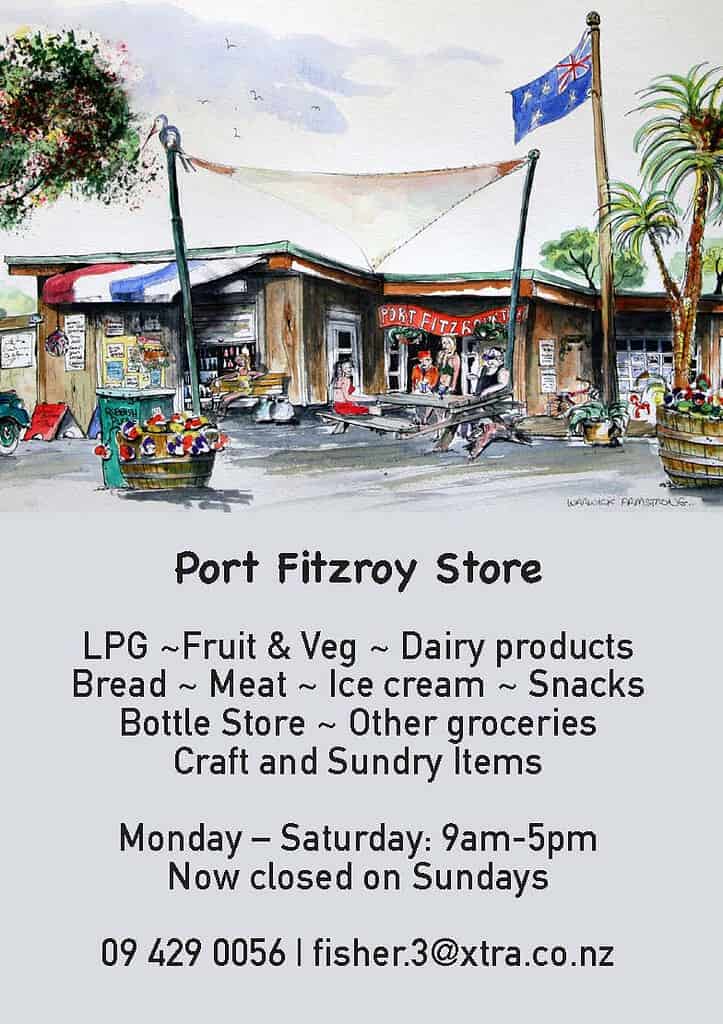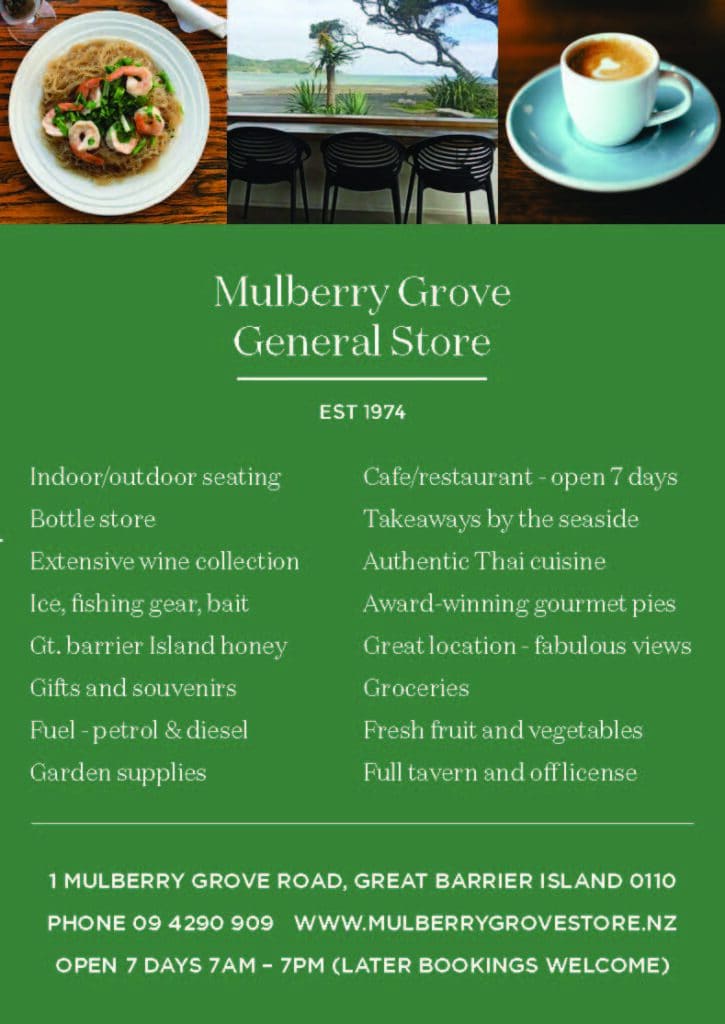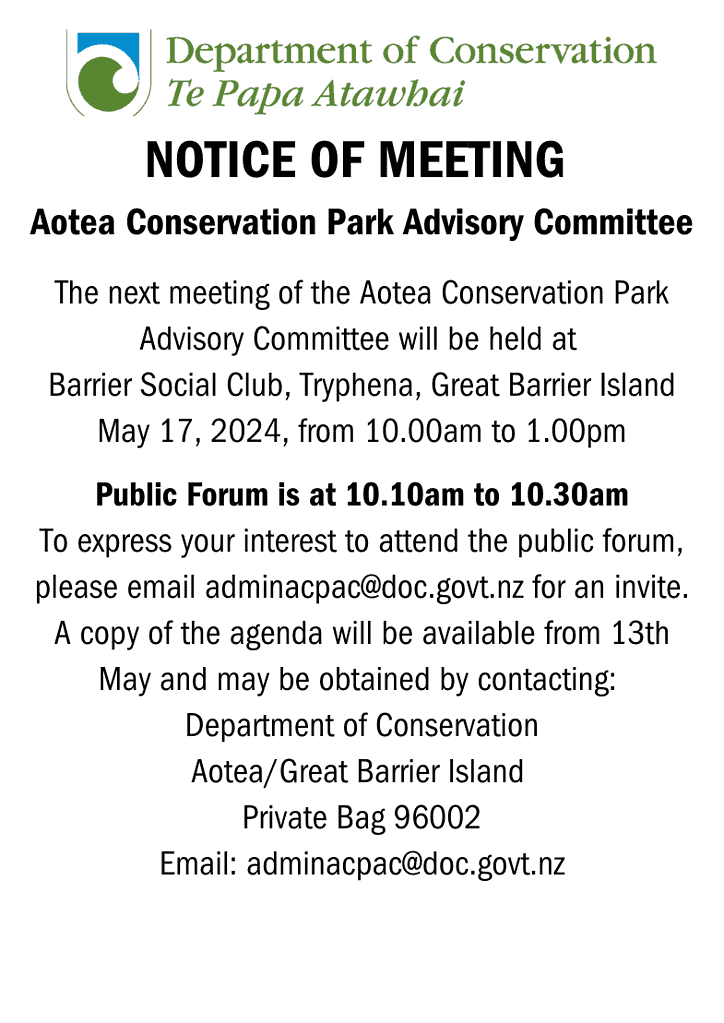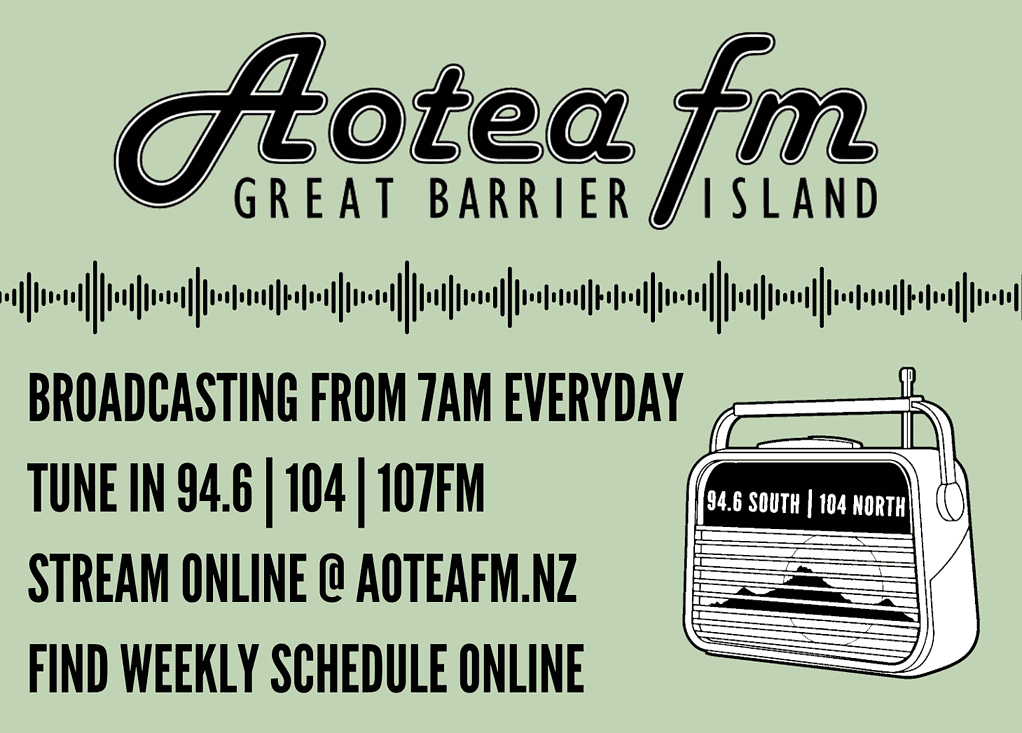‘I loved it immediately’ Maree says about her work at Aotea Learning Hub.
Maree Munday is a woman who loves her work. “I feel very lucky to work here, it’s the best thing.”
She’s talking about her job as teaching assistant at the Aotea Learning Hub, a role she took on in October last year. It includes not only helping the students in class, but also driving to Okiwi and Fitzroy each Hub day (Wednesday, Thursday and Friday) to collect rangatahi coming from the North.
“I pick up the van from the Hub between 7 and 7:15 each morning, then drive to Fitzroy, and then Okiwi. On any given day I might get one student, or I might get 10. Today was full – chock-a-block.”
She then drops them back again at the end of the day. “The driving is good. It’s fine. It hasn’t bothered me at all, apart from one serious bout of car sickness…the poor girl.”
Maree had never worked with kids before joining the Hub. “I saw William down at the wharf, and he asked me if I’d be interested in the role. And I couldn’t stop thinking about it. I was very interested.
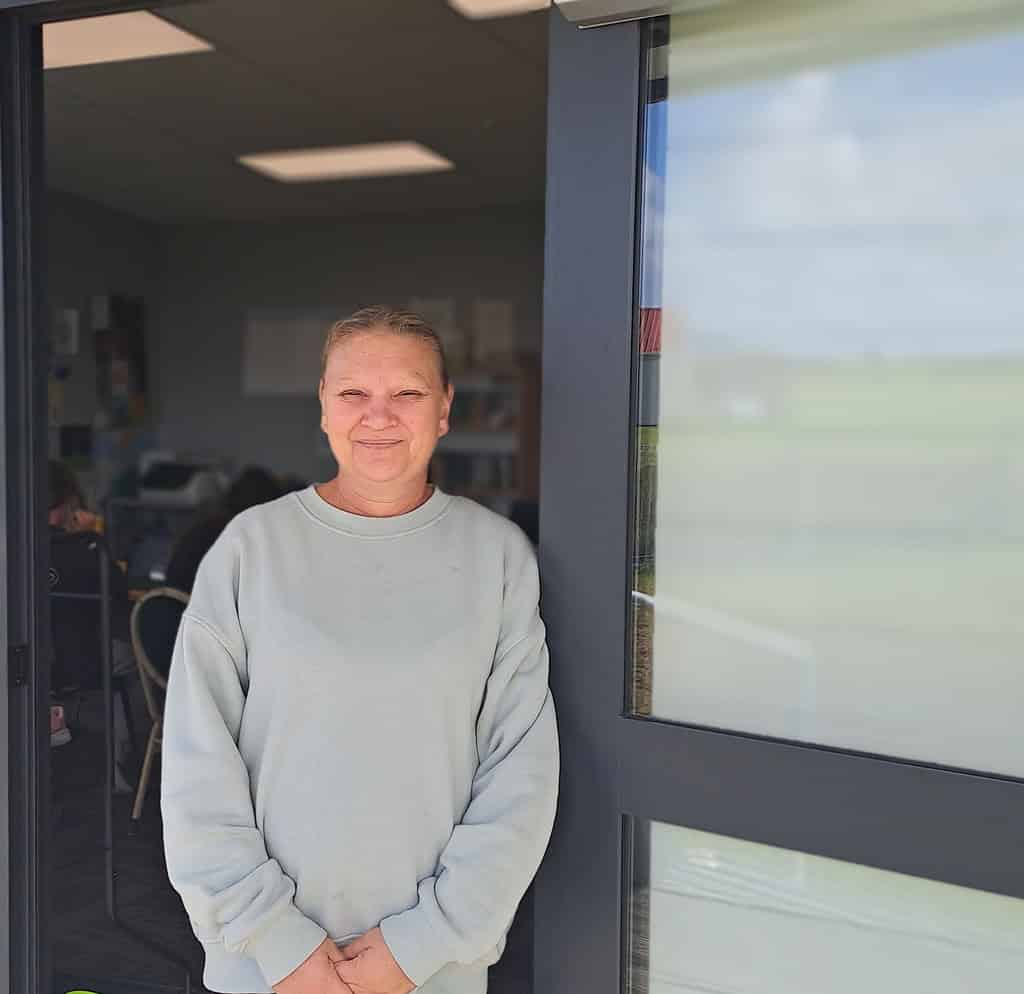
“I didn’t really know much about the Hub before. I knew it existed because Mickey’s kids had been here. But I loved it immediately. It’s fantastic. The students here are so lucky to have this. The tutors – Ben and Neil – are amazing. They have blown me away.”
The Hub was founded in 2017, a joint initiative between the local board, Ministry of Education and Aotea Education Trust. It was aimed at providing a physical space for the island’s correspondence school kids to study, access reliable internet and socialise.
First it was housed in the former rural women’s headquarters on Moana View Road, then it moved to the space above Anne’s vet clinic in Claris. But in 2021, the Ministry came to the party and in an extraordinarily efficient 10-week build, constructed a purpose-built learning space for the students on Kaitoke Lane, where they’ve been ever since.
Neil Sanderson and Ben Assado have been Hub tutors from the get-go; William Park joined them as Hub manager in 2022, taking over from Mairehau Cleave.
Before the Hub, the students needed to self-motivate enough to do their schoolwork at home. Course completion wasn’t great, and many struggled to achieve academically. The Hub has helped with both. But it’s not just the academic side of things that’s important. Tutor Ben’s end-of-year report from last year reads:
“Parents say their children love to attend the Hub … overall our students relish the opportunity to interact and study with their friends in a structured and consistent manner … The Hub serves as an invaluable space for our students to socialise face to face. It fosters meaningful connections that contribute significantly to social wellbeing and a sense of belonging in the community. Even students who were initially reserved and introverted have developed improved communication skills.”
Maree compares this to when her husband Travis was enrolled at correspondence school on the island. “He said when he was doing correspondence at home, he just didn’t do the work, because there was no one there to motivate him, or to help him … some of the work is actually quite hard!! He has said he wishes there was something like the Hub back in his day.”
Maree says before her, the Hub was quite “boy-heavy”. Straight away she found that the older girls came to her to talk. “That was an immediate thing … I’ve had to ask Willy a couple of times, what are my boundaries here? Because that’s important – I’d hate to upset a parent, or say the wrong thing.”
Youth worker Ebony Kite-Bell was there the day I visited. “I try to drop in every day. It’s really just a hauora/ mental health drop in, and if they [the students] have things they want to talk about, then we talk about them.
“In this position it’s really important to have a male-to-female ratio … to make sure the girls have someone to talk to.”
It’s clear that both her and Maree hold the Hub students in high regard. “Teenagers can be so daunting but they’re actually so real. And it enables you to be real with them; ok, this is life, this is what it is,” says Ebony.
Maree: “They’re amazing. There have been a couple of times when I thought ‘can’t I do this’, and it was actually a couple of the students who said, ‘we love you Maree, you’re great’.”
Ebony: “Not having the Hub would have a huge impact on these kids’ mental health; not being able to be with each other, and study together, and talk, and feel like you’re a part of something. It’s more than just coming and doing your work. This is theirs – this is their building.
“Correspondence school can be very isolating, on an already isolated island. After going through Covid we’ve been working hard to help them with social anxiety; even just one trip to the Hub each week – that’s a win.”
Words by the Aotea Education Trust
